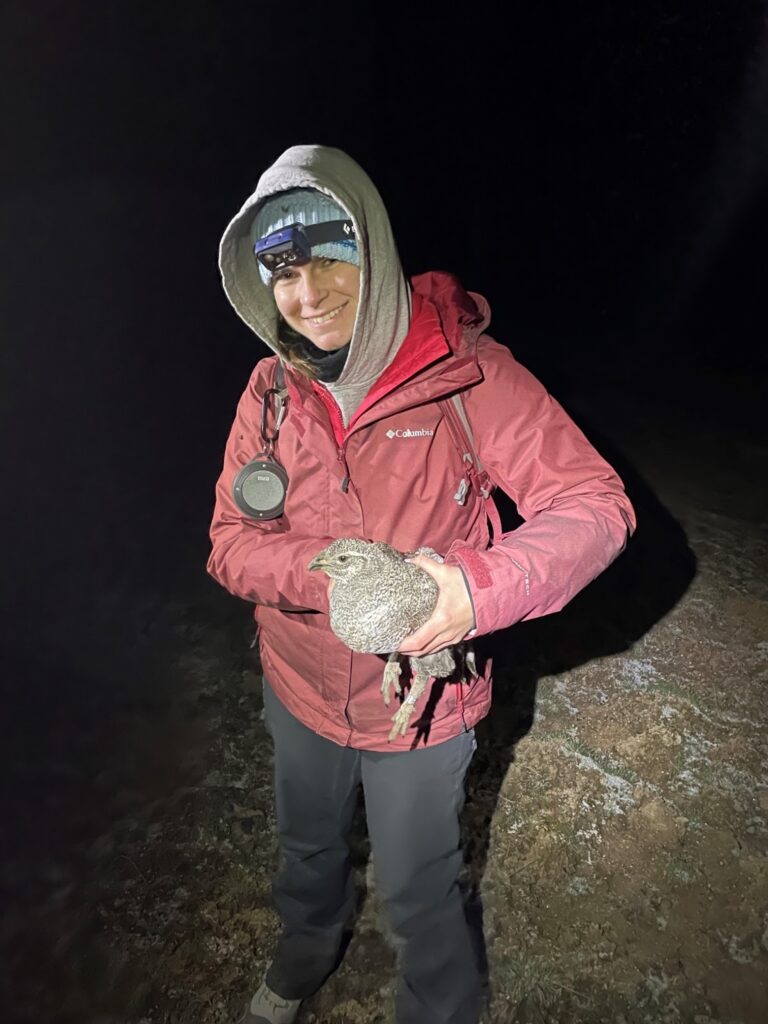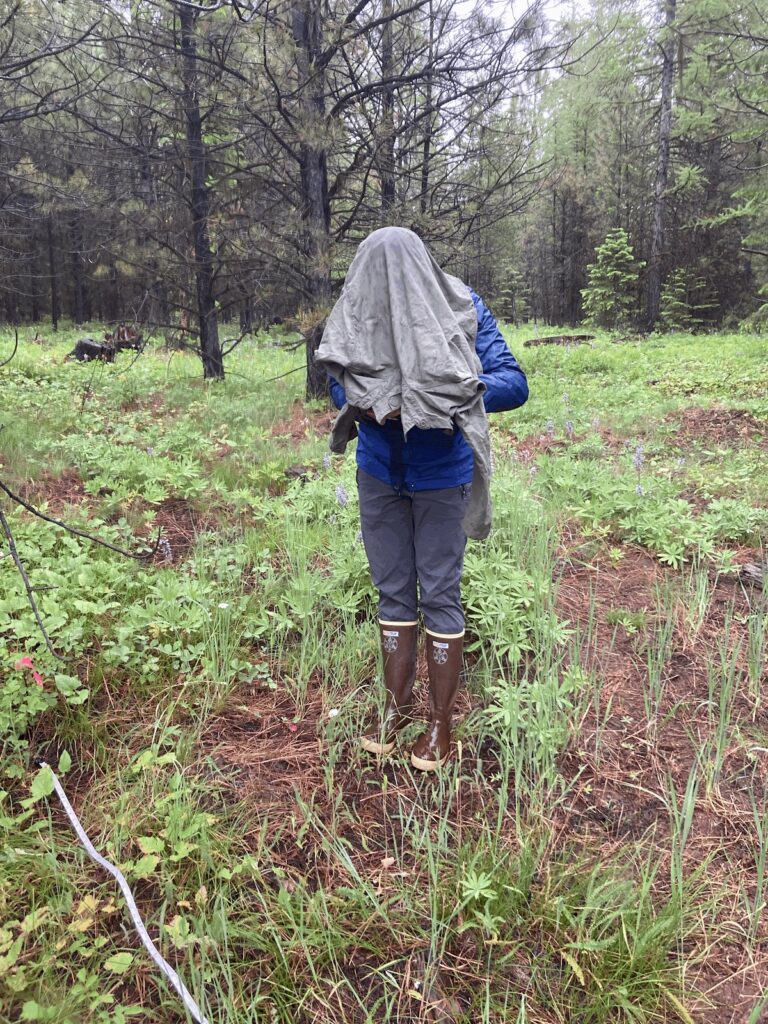Eastern Oregon consists of a multitude of landscapes such as high desert plains, rugged mountain ranges, and sweeping sagebrush steppe. Volcanic plateaus, deep river canyons, and wide valleys carved by ancient floods create a sense of space and solitude. However, despite the arid climate, much of Oregon’s agriculture thrives here. Supported by rivers and aquifers, farmers produce wheat, alfalfa, and hay and ranchers raise cattle and other livestock. Small farming and ranching communities anchor the area, where traditional agricultural practices blend with newer practices of sustainable land management and dryland farming.
But what happens when the rich agricultural landscape meets the rugged and wild natural ecosystems of eastern Oregon? Fourth year PhD student Lara Mengak aims to answer some of these questions. Her dissertation work is trying to understand what social and ecological threats impact ranchers in Oregon. What kinds of conflicts exist between natural predators, such as wolves, and livestock? What are the best ways to mitigate these conflicts? How do we manage landscapes to support wildlife conservation and agriculture? How do these things vary as a function of climate change or drought?

Lara’s work is unique in that she aims to blend social science and field-based ecological research to develop a deep understanding of human-wildlife conflict in eastern Oregon. Her surveys have brought in over 700 responses from ranchers across the entire state. In addition to these types of data, she spent two field seasons collecting data in the Starkey Experimental Forest and Range. She uses vegetation data to understand what types of plants are available to grazing animals like elk and livestock, and she also collected scat to use DNA metabarcoding to identify exactly which plant species are being grazed. She describes DNA metabarcoding, a technique that uses short, standardized sections of DNA, called barcodes, to identify species, similar to how a supermarket scanner uses barcodes to identify items in the store.

Lara had a variety of experience before starting her doctoral degree at Oregon State University. Originally from Georgia, she completed her undergraduate degree at the University of Georgia. She received her master’s degree at Virginia Tech in 2018, and has also worked as a research technician at various field sites across the country. She spent two years in Anchorage, Alaska, working for the Alaska Department of Fish and Game as a Wildlife Biologist. We are so excited to talk to Lara about her past work experiences and her current social and ecological research on October 12th at 7pm on KBVR 88.7, and afterwards, find her episode anywhere you listen to podcasts!

Written by: Taylor Azizeh
